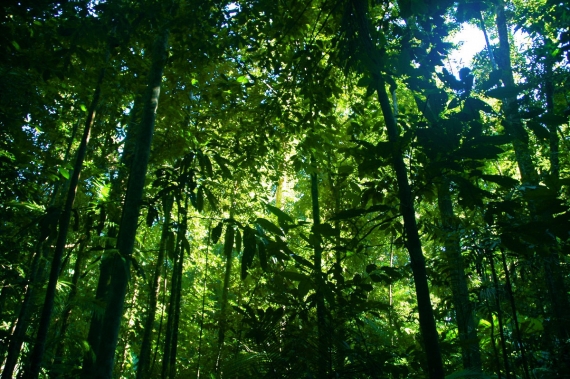MAKING GREEN DRUGS: tapping into nature without tapping it out
A news piece introducing Weng lab research on medicinal plants of the world by Greta Friar.

Rainforest by Ben Britten is licensed under CC BY 2.0
A news piece introducing Weng lab research on medicinal plants of the world by Greta Friar.

Rainforest by Ben Britten is licensed under CC BY 2.0
Making our world more sustainable to preserve it for future generations will take not just one but many solutions. Researchers at Whitehead Institute are exploring how the natural world could teach us how to improve the sustainability of how we produce food, how we make medicines, how we make products more durable, and potentially how we remove carbon from the atmosphere. In this special episode of AudioHelicase, we’ll hear from researchers at the Institute that are pursuing creative solutions to sustainability that combine a passion for making a difference with boundless curiosity for the living world.
Whitehead Institute Members Ankur Jain and Jing-Ke Weng have received a @cziscience grant for a collaborative project using plant cells to screen for small molecules that affect RNA & protein aggregates seen in neurodegeneration: http://ow.ly/bRY550B3KsY

Joe Jacobowitz successfully defended his PhD thesis today through Zoom (the first time ever in the Weng lab history). Many congrats to achieving this remarkable milestone in your career at this challenging time! We will make up for the in-person celebrations at an appropriate time, hopefully in the near future.

Celebration poster by Sophia Xu
Plants have been used as medicine for thousands of years; could they contribute to a solution to the COVID-19 pandemic? This is what Whitehead Institute Member Jing-Ke-Weng set out to address in a new paper, published May 20 in the journal Molecular Plant. In the recent episode of AudioHelicase, he spoke about an herbal treatment being used to treat COVID-19 in China derived from Traditional Chinese Medicine, the work necessary for such a treatment to be translated to an FDA-approved drug, and why the COVID-19 pandemic underscores the need for basic, fundamental research in plant science and beyond.
Fu-shuang Li is collecting plant specimens for his research on pollen, and using the extra specimens to create pollen and flower art. Click here to learn more and see some of his creations.

Our collaborative paper with Marelli lab on using silk‐based microinjector for site-specific target delivery in plants is out today. Congrats to all! See news release from Phys.Org here.


The second season of BioGenesis centers on the theme of “converging paths.” This episode features graduate student Sophia Xu, who’s bringing together modern scientific methods and ancient Eastern herbal remedies. She studies molecules in plants to investigate how molecules in natural products interact with proteins in the human body — and she may even find a cure for hangovers along the way.